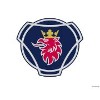Procurement Analyst
20+ Procurement Analyst Interview Questions and Answers

Asked in Accenture

Q. Explain P2P cycle, SAP TCodes used in P2P cycle, what is strategic sourcing, what is tactical sourcing
P2P cycle involves procurement process from requisition to payment. SAP TCodes used are ME21N, ME59N, MIRO, etc. Strategic sourcing is long-term planning for procurement while tactical sourcing is short-term execution.
P2P cycle includes requisition, purchase order, goods receipt, invoice verification, and payment
SAP TCodes used in P2P cycle include ME21N for creating purchase order, ME59N for automatic creation of purchase requisition, MIRO for invoice verification, etc.
Strat...read more

Asked in IBM

Q. What is a purchase requisition?
A purchase requisition is a document used to request goods or services from a supplier.
It is a formal request for procurement of goods or services.
It includes details such as quantity, description, and estimated cost.
It is typically initiated by a department or individual within an organization.
It is used to obtain approval for the purchase before it is made.
It is an important part of the procurement process.
Example: A department within a company needs to purchase new compute...read more
Procurement Analyst Interview Questions and Answers for Freshers

Asked in Accenture

Q. What is the volume of transactions handled in a day?
The volume of transactions handled in a day varies depending on the size and complexity of the organization.
The volume of transactions can range from a few dozen to thousands per day.
Factors such as the industry, size of the organization, and procurement processes can impact the volume of transactions.
For example, a small company may handle 50 transactions per day, while a large corporation may handle thousands.
Efficient procurement systems and automation can help manage high...read more

Asked in IBM

Q. How do you validate a purchase order?
To validate a PO, check for accuracy, completeness, and compliance with procurement policies.
Verify that the PO number matches the one in the system
Ensure that the vendor information is correct
Check that the items ordered match the specifications and quantities requested
Confirm that the prices are accurate and in line with the budget
Ensure that the PO is authorized and approved by the appropriate personnel
Check that the delivery date and location are correct
Verify that the te...read more

Asked in IBM

Q. Who creates purchase requests and how?
PR is created by the PR department or agency, in collaboration with the relevant stakeholders.
PR department or agency is responsible for creating PR
Collaboration with relevant stakeholders is necessary
PR creation involves identifying target audience, crafting key messages, and selecting appropriate channels
PR can be created for various purposes such as brand awareness, crisis management, product launches, etc.
Asked in IdamTat

Q. Do you know about Supply chain management?
Yes, supply chain management involves the coordination and management of activities involved in the production and delivery of goods and services.
It includes planning, sourcing, manufacturing, logistics, and delivery.
Effective supply chain management can improve efficiency, reduce costs, and increase customer satisfaction.
Examples of supply chain management tools include inventory management software, transportation management systems, and supplier relationship management sof...read more
Procurement Analyst Jobs




Asked in Genpact

Q. What is a purchase order?
A purchase order is a document issued by a buyer to a seller, indicating types, quantities, and agreed prices for products or services.
It is a legal document that outlines the details of a purchase agreement between a buyer and a seller.
It includes information such as the product or service being purchased, the quantity, the agreed-upon price, and delivery date.
It serves as a contract between the buyer and seller, ensuring that both parties are aware of the terms of the agree...read more

Asked in IBM

Q. Explain the procure-to-pay (P2P) cycle with an example.
P2P cycle refers to the procurement process from purchase to payment.
The cycle starts with identifying the need for a product or service.
A purchase order is then created and sent to the supplier.
The supplier delivers the product or service and sends an invoice.
The invoice is matched with the purchase order and goods receipt.
If everything matches, the invoice is approved for payment.
Payment is then made to the supplier.
The cycle ends with recording the transaction in the accou...read more
Share interview questions and help millions of jobseekers 🌟


Asked in IBM

Q. What are the 5 key fields in a purchase requisition?
The 5 key fields in PR are supplier management, contract management, sourcing, negotiation, and spend analysis.
Supplier management involves identifying and managing suppliers to ensure timely delivery of goods and services.
Contract management involves creating and managing contracts with suppliers to ensure compliance and minimize risk.
Sourcing involves identifying potential suppliers and evaluating their capabilities and offerings.
Negotiation involves negotiating with suppli...read more

Asked in Flex

Q. Why did you choose the supply chain management field?
Supply chain management offers opportunities for optimization, cost reduction, and efficiency in procurement processes.
Opportunity to optimize processes and reduce costs through efficient supply chain management
Ability to identify and mitigate risks in the procurement process
Enhanced collaboration with suppliers for better negotiation and relationship management
Opportunity to implement innovative technologies for improved efficiency, such as AI and blockchain
Potential for car...read more
Asked in Vmd Tech Systems

Q. How do you maintain version control for different types of purchase orders?
Maintaining version management for different types of purchase orders involves tracking changes and ensuring accuracy.
Create a system for tracking changes to purchase orders
Ensure accuracy by verifying changes before finalizing
Use a standardized naming convention for different versions
Implement a review process for changes made to purchase orders
Examples of different types of purchase orders include standard, blanket, and contract

Asked in Accenture

Q. What is procurement?
Procurement is the process of acquiring goods or services from external sources.
Procurement involves identifying the need for goods or services, selecting suppliers, negotiating contracts, and managing the delivery of the goods or services.
It is an important function in any organization as it ensures that the organization has the necessary resources to operate effectively.
Examples of procurement include purchasing office supplies, hiring contractors for construction projects,...read more

Asked in Flex

Q. What is supply chain management?
Supply chain management involves the coordination and optimization of all activities involved in the sourcing, procurement, production, and logistics of goods and services.
Involves managing the flow of goods and services from the point of origin to the point of consumption
Includes activities such as sourcing, procurement, production planning, inventory management, and distribution
Aims to optimize efficiency, reduce costs, and improve customer satisfaction
Utilizes technology a...read more
Asked in 247Hire

Q. What is Sourcing?
Sourcing is the process of finding, evaluating, and selecting suppliers to provide goods or services.
Sourcing involves identifying potential suppliers
Evaluating suppliers based on criteria such as quality, price, and reliability
Negotiating contracts and terms with selected suppliers
Managing relationships with suppliers to ensure ongoing supply chain efficiency
Examples: Request for Proposal (RFP), Request for Quotation (RFQ), Supplier Audits

Asked in Accenture

Q. What is the foundation of a supply chain?
The base of the supply chain refers to the starting point of the flow of goods and services through the chain.
The base of the supply chain typically includes raw material suppliers or manufacturers.
It is where the production process begins before moving on to distribution and ultimately reaching the end consumer.
Efficient management of the base of the supply chain is crucial for ensuring timely and cost-effective delivery of products.
Examples of the base of the supply chain i...read more
Asked in Programmr Technologies

Q. How do you convert a purchase requisition to a purchase order?
Converting a Purchase Requisition (PR) to a Purchase Order (PO) involves several key steps in procurement processes.
Review the Purchase Requisition for accuracy and completeness.
Obtain necessary approvals from relevant stakeholders.
Create a Purchase Order in the procurement system using the PR details.
Include vendor information, item descriptions, quantities, and pricing.
Send the Purchase Order to the vendor for confirmation.

Asked in Reliance Industries

Q. What are Incoterms?
Inco terms are a set of standardized trade terms used in international commercial transactions.
Inco terms define the responsibilities and obligations of buyers and sellers in terms of transportation, insurance, and customs clearance.
There are 11 Inco terms, including EXW, FOB, CIF, and DDP.
Inco terms help to avoid misunderstandings and disputes between parties involved in international trade.
Inco terms are regularly updated by the International Chamber of Commerce (ICC) to re...read more

Asked in ALTEN

Q. How can we evaluate suppliers?
Suppliers can be evaluated through performance metrics, quality assessments, financial stability, and relationship management.
Performance metrics such as on-time delivery, quality of products/services, and cost-effectiveness.
Quality assessments through audits, certifications, and customer feedback.
Financial stability analysis including credit checks, profitability, and liquidity ratios.
Relationship management by assessing communication, responsiveness, and collaboration.
Regul...read more

Asked in Scania

Q. How do you handle suppliers?
Handle suppliers by building strong relationships, communicating effectively, negotiating fair terms, and monitoring performance.
Establish clear communication channels with suppliers
Negotiate fair prices and terms to ensure mutual benefit
Regularly monitor supplier performance and address any issues promptly
Build strong relationships based on trust and collaboration
Diversify your supplier base to reduce risk

Asked in Delhivery

Q. What is logistics?
Logistics is the process of planning, implementing, and controlling the efficient flow and storage of goods, services, and related information from point of origin to point of consumption.
Involves transportation, warehousing, inventory management, and information flow
Focuses on optimizing processes to ensure timely delivery of goods and services
Includes activities such as procurement, production planning, packaging, and distribution
Examples: managing a supply chain, coordinat...read more

Asked in Reliance Industries

Q. What is warehousing?
Warehousing is the process of storing goods in a designated location for future use or distribution.
Warehousing involves receiving, storing, and organizing goods in a facility.
It includes inventory management, order fulfillment, and shipping logistics.
Examples of warehousing facilities include distribution centers, warehouses, and storage units.

Asked in Genpact

Q. What is the P2P cycle?
The P2P cycle refers to the Procure-to-Pay cycle, which involves the steps from requisition to payment for goods or services.
The cycle typically starts with a requisition for goods or services
Next, the procurement team identifies potential suppliers and requests quotes or proposals
Once a supplier is selected, a purchase order is created and sent to the supplier
Goods or services are received and inspected upon delivery
Invoices are then matched to the purchase order and goods r...read more

Asked in IBM

Q. Evaluation of vendors
Evaluation of vendors involves assessing their performance, capabilities, and reliability to ensure they meet the organization's needs.
Assess vendor's track record and reputation
Evaluate vendor's financial stability and resources
Consider vendor's quality of products or services
Assess vendor's responsiveness and communication
Compare vendor's pricing and terms with competitors
Review vendor's compliance with regulations and standards

Asked in IBM

Q. Process of procurement
Procurement process involves identifying needs, sourcing suppliers, negotiating contracts, and managing supplier relationships.
Identifying needs and requirements
Sourcing potential suppliers
Negotiating terms and contracts
Managing supplier relationships
Ensuring compliance with regulations and policies
Interview Questions of Similar Designations
Interview Experiences of Popular Companies








Reviews
Interviews
Salaries
Users
















